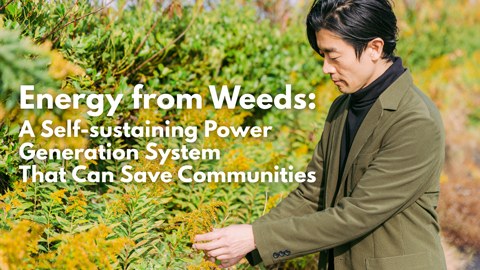The Tokyo 2020 Games, which reached a safe conclusion even under the difficult circumstances presented by the COVID-19 pandemic, made a significant step toward the realization of an inclusive society—one in which everyone respects one another regardless of gender, age, or ability.
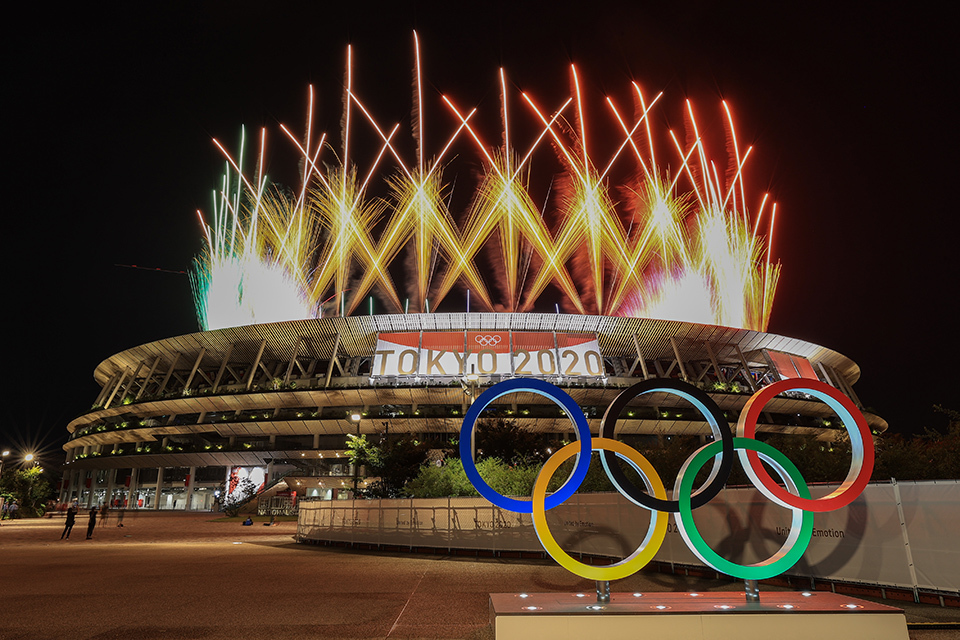
Some 11,000 athletes from 205 countries and regions and the Refugee Olympic Team participated in the Tokyo 2020 Olympic Games, giving inspiring performances and setting numerous records. (Photo: Closing ceremony of the Olympic Games, August 8) AFLO SPORTS
It was precisely because the world had been facing great difficulties due to the COVID-19 pandemic that Japan determined to fulfill its responsibility as host country to hold the Tokyo 2020 Games, even without spectators, and to provide the world with a sense of solidarity and to offer hopes and dreams, especially to children, who hold the future in their hands. Firmly intent on making this happen, many people throughout Japan worked in unison, striving to implement measures for safety and security to ensure that Japan bring the Games to a safe conclusion.
The Tokyo 2020 Games not only moved and inspired many people through sports, but also advanced the Games’ core concept of “Unity in Diversity,” serving to promote the further growth of this movement. The percentage of female athletes participating in the Olympic Games was a record 48.8. Moreover, the number of athletes who identified themselves as LGBTQ+ was reportedly over 180—more than triple that of the Rio 2016 Games—and they won more than 55 medals among them. In order to promote gender equality, the number of mixed-gender events was doubled to 18. Seeing men and women teaming up to compete for their country was like a breath of fresh air. The Paralympic Games, which was held in Tokyo for the second time, served as an opportunity to convey to the world and cultivate the “barrier-free mindset” that is at the foundation of an inclusive society, in which everyone, with or without impairments, can lead a vibrant life.
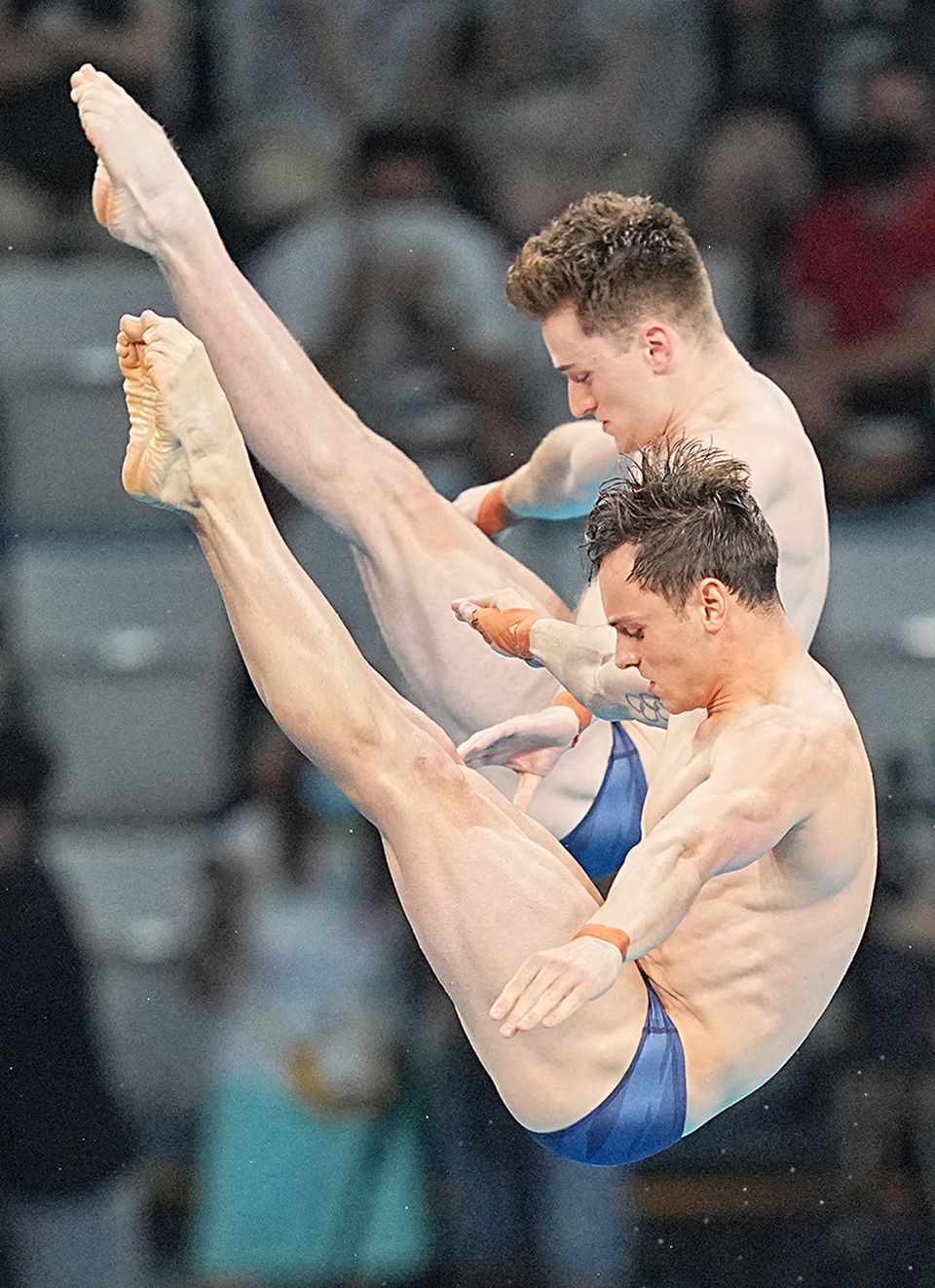
Tom Daley (foreground), an openly gay athlete who won the gold medal for Great Britain in the men’s synchronized 10-meter platform, told the press, “I’m incredibly proud to say that I’m a gay man and also an Olympic champion.” PICTURE ALLIANCE/AFLO
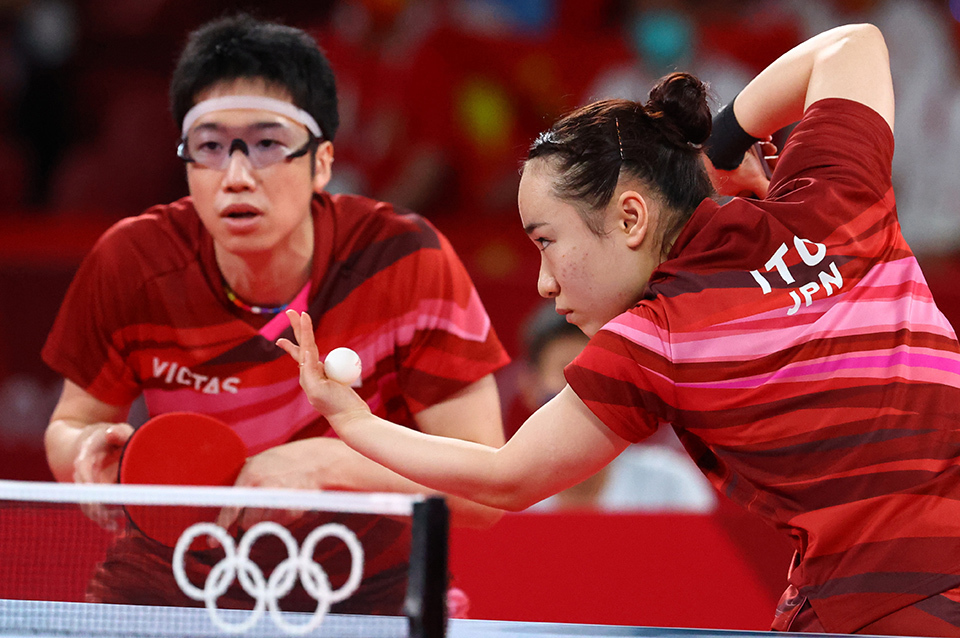
Top: The Japanese duo of MIZUTANI Jun and ITO Mima won the gold in a new event, mixed doubles table tennis. REUTERS/AFLO
Left: Tom Daley (foreground), an openly gay athlete who won the gold medal for Great Britain in the men’s synchronized 10-meter platform, told the press, “I’m incredibly proud to say that I’m a gay man and also an Olympic champion.” PICTURE ALLIANCE/AFLO
The Japanese duo of MIZUTANI Jun and ITO Mima won the gold in a new event, mixed doubles table tennis. REUTERS/AFLO
Supporting the success of the Games from behind the scenes were more than 70,000 Games volunteers, who ranged in age from 19 to 91. These volunteers, regardless of age, gender, or disability, played the vital role of actuating the concept of “Unity in Diversity” by providing hospitality and supporting athletes and staff from around the world. MIURA Hisashi, who has a hearing impairment, was one of these volunteers. Wanting to contribute in some way to this historic event, he performed reception and maintenance duties, among others, at the residential buildings and fitness center at the Olympic and Paralympic Village. “As I actively offered my own opinions and shared sign-language skills, my teammates also naturally started to communicate more openly, showing their care for one another using both spoken words and sign language. Ultimately, I felt that we made an excellent team, and were able to fulfill our role. It was also unforgettable to have the chance to communicate with players and staff visiting from all around the world using gestures and body language. I’m glad that I was able to support them, even if only in a small way”, says Miura.
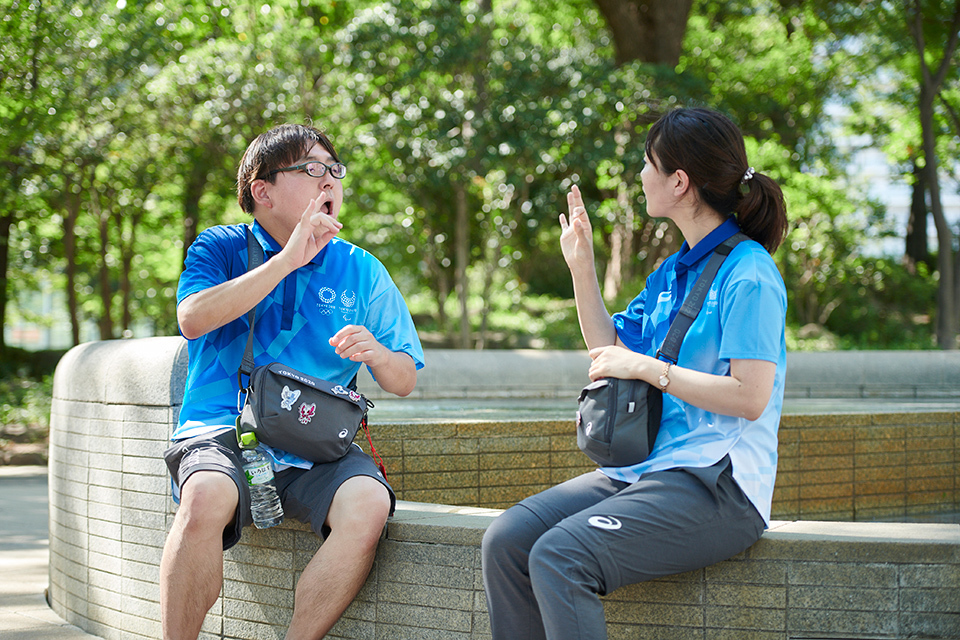
MIURA Hisashi (left), who has a hearing impairment, participated in the Games as a volunteer. Through the assistance of the Nippon Foundation Volunteer Support Center, which provides support to volunteers with impairments, he worked on a team together with an individual (right) who was able to offer sign-language interpretation at the venue to support the athletes. THE NIPPON FOUNDATION VOLUNTEER SUPPORT CENTER
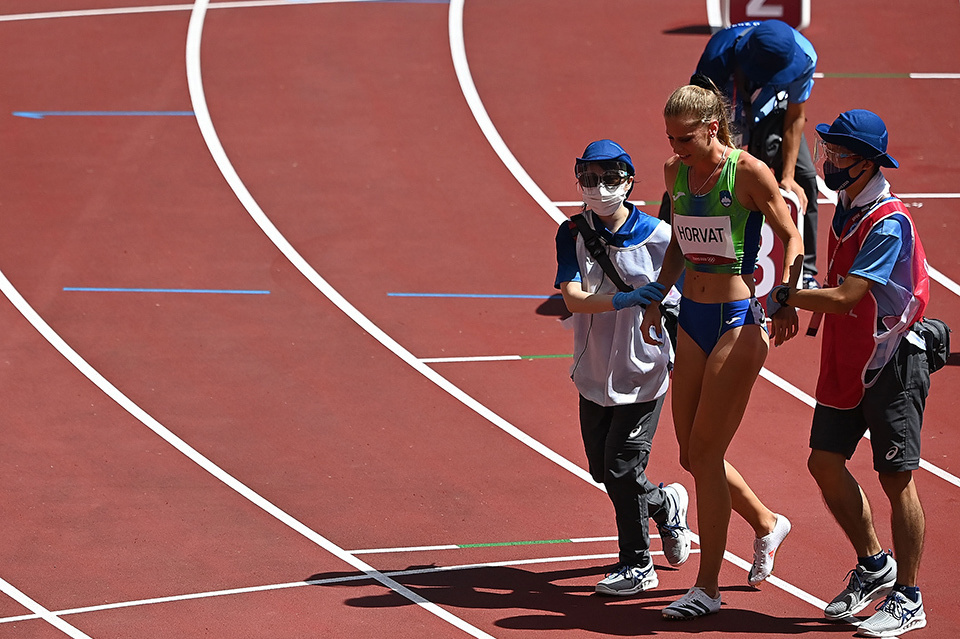
With the help of volunteers, Slovenian sprinter Anita Horvat exits the venue after the competition. Volunteers offered their assistance to athletes and Games personnel not just at the competition venues, but also at various locations around the country. XINHUA/AFLO
Respecting and supporting one another regardless of differences is crucial to the realization of an inclusive society. At this year’s Games, this notion was reiterated to many people throughout the world. Miura says, “The Tokyo 2020 Games offered an opportunity to make great progress in terms of ‘Unity in Diversity.’ I am thankful that I was able to make my personal contribution as a volunteer at the Games, and I believe it is important to continue building up such experiences, not just at the Olympics and Paralympics.”
Each of us embracing diversity will create a vitality that will lead to the realization of a world where everyone can live comfortably. The Tokyo 2020 Games were a sure, significant step in that direction.




























